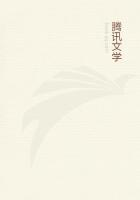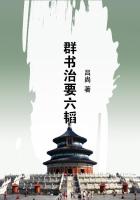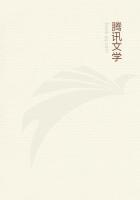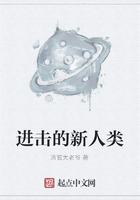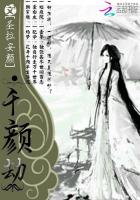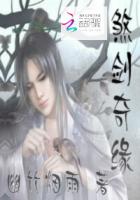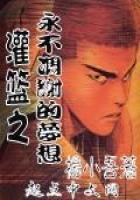Two practitioners of the ancient town of Newbury are entitled to special notice, for different reasons. The first is Dr. John Clark, who is said by tradition to have been the first regularly educated physician who resided in New England. His portrait, in close-fitting skull-cap, with long locks and venerable flowing beard, is familiar to our eyes on the wall of our Society's antechamber. His left hand rests upon a skull, his right hand holds an instrument which deserves a passing comment. It is a trephine, a surgical implement for cutting round pieces out of broken skulls, so as to get at the fragments which have been driven in, and lift them up. It has a handle like that of a gimlet, with a claw like a hammer, to lift with, I suppose, which last contrivance I do not see figured in my books. But the point I refer to is this: the old instrument, the trepan, had a handle like a wimble, what we call a brace or bit- stock. The trephine is not mentioned at all in Peter Lowe's book, London, 1634; nor in Wiseman's great work on Surgery, London, 1676; nor in the translation of Dionis, published by Jacob Tonson, in 1710.
In fact it was only brought into more general use by Cheselden and Sharpe so late as the beginning of the last century. As John Clark died in 1661, it is remarkable to see the last fashion in the way of skull-sawing contrivances in his hands,--to say nothing of the claw on the handle, and a Hey's saw, so called in England, lying on the table by him, and painted there more than a hundred years before Hey was born. This saw is an old invention, perhaps as old as Hippocrates, and may be seen figured in the "Armamentarium Chirurgicum" of Scultetus, or in the Works of Ambroise Pare.
Dr. Clark is said to have received a diploma before be came, for skill in lithotomy. He loved horses, as a good many doctors do, and left a good property, as they all ought to do. His grave and noble presence, with the few facts concerning him, told with more or less traditional authority, give us the feeling that the people of Newbury, and afterwards of Boston, had a wise and skilful medical adviser and surgeon in Dr. John Clark.
The venerable town of Newbury had another physician who was less fortunate. The following is a court record of 1652:
"This is to certify whom it may concern, that we the subscribers, being called upon to testify against doctor William Snelling for words by him uttered, affirm that being in way of merry discourse, a health being drank to all friends, he answered, "I'll pledge my friends, And for my foes A plague for their heels And,'---
[a similar malediction on the other extremity of their feet.]
"Since when he hath affirmed that he only intended the proverb used in the west country, nor do we believe he intended otherwise.
[Signed]
WILLIAM THOMAS.
THOMAS MILWARD.
"March 12th 1651, All which I acknowledge, and am sorry I did not expresse my intent, or that I was so weak as to use so foolish a proverb.
[Signed]
GULIELMUS SNELLING."
Notwithstanding this confession and apology, the record tells us that "William Snelling in his presentment for cursing is fined ten shillings and the fees of court."
I will mention one other name among those of the Fathers of the medical profession in New England. The "apostle" Eliot says, writing in 1647, "We never had but one anatomy in the country, which Mr. Giles Firman, now in England, did make and read upon very well."
Giles Firmin, as the name is commonly spelled, practised physic in this country for a time. He seems to have found it a poor business; for, in a letter to Governor Winthrop, he says, "I am strongly sett upon to studye divinitie: my studyes else must be lost, for physick is but a meene helpe."
Giles Firmin's Lectures on Anatomy were the first scientific teachings of the New World. While the Fathers were enlightened enough to permit such instructions, they were severe in dealing with quackery; for, in 1631, our court records show that one Nicholas Knopp, or Knapp, was sentenced to be fined or whipped "for taking upon him to cure the scurvey by a water of noe worth nor value, which he solde att a very deare rate." Empty purses or sore backs would be common with us to-day if such a rule were enforced.
Besides the few worthies spoken of, and others whose names I have not space to record, we must remember that there were many clergymen who took charge of the bodies as well as the souls of their patients, among them two Presidents of Harvard College, Charles Chauncy and Leonard Hoar,--and Thomas Thacher, first minister of the "Old South," author of the earliest medical treatises printed in the country,[A Brief Rule to Guide the Common People in Small pox and Measles. 1674.] whose epitaph in Latin and Greek, said to have been written by Eleazer, an "Indian Youth" and a member of the Senior Class of Harvard College, may be found in the "Magnalia." I miss this noble savage's name in our triennial catalogue; and as there is many a slip between the cup and lip, one is tempted to guess that he may have lost his degree by some display of his native instinct,-- possibly a flourish of the tomahawk or scalping-knife. However this may have been, the good man he celebrated was a notable instance of the Angelical Conjunction, as the author of the "Magnalia" calls it, of the offices of clergyman and medical practitioner.
Michael Wigglesworth, author of the "Day of Doom," attended the sick, "not only as a Pastor, but as a Physician too, and this, not only in his own town, but also in all those of the vicinity." Mather says of the sons of Charles Chauncy, " All of these did, while they had Opportunity, Preach the Gospel; and most, if not all of them, like their excellent Father before them, had an eminent skill in physick added unto their other accomplishments," etc. Roger Williams is said to have saved many in a kind of pestilence which swept away many Indians.

